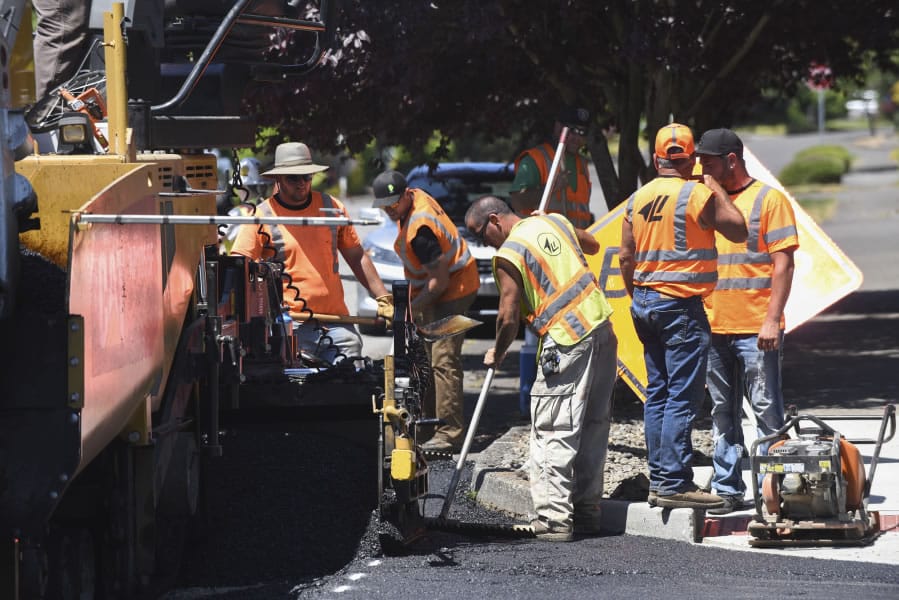Drivers in Vancouver’s Cascade South East Neighborhood may have been caught off guard Wednesday by an unusual sight on a residential street: paving equipment.
A road construction crew from Lakeside Industries of Vancouver laid hot mix asphalt in a residential neighborhood.
The rehab work is part of the city’s Pavement Management Program, which got additional funding from the city’s Street Funding Strategy, which the city council adopted in 2015.
This year the Pavement Management Program will spend close to $9.7 million in repairing and preserving the city streets. This year’s budget is about $3.6 million more than last year.
The Street Funding Strategy aims to improve streets citywide for all users.
Last year served as a start-up year for the Street Funding Strategy. This is the first year the program was fully funded.
“Pavement management in the past has always addressed keeping good streets in good condition,” said Vancouver Public Works spokeswoman Loretta Callahan. “The additional funding allows us to begin address residential streets that are poor or failing.”
Bringing all those roads up to a higher standard will take years. This year, the money will pave 21 miles of roadway, 30 percent more than last year; and preserve 115 lane miles, close to 60 percent more than 2016. A number of curb ramps will also be updated to meet the standards of the Americans with Disabilities Act.
The program is supported by local taxes, including property, sales, real estate excise taxes, and the new Street Funding Strategy revenues.




